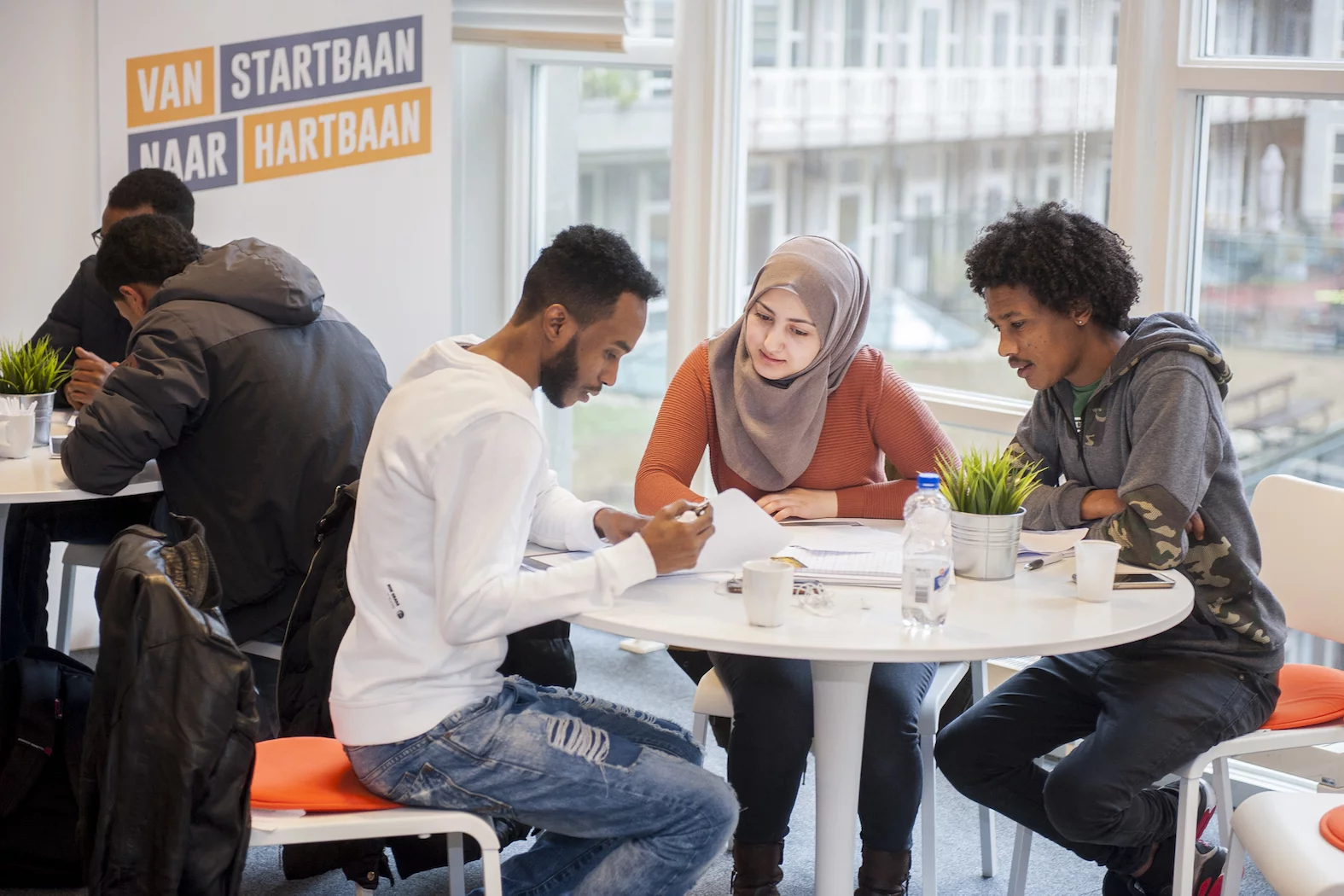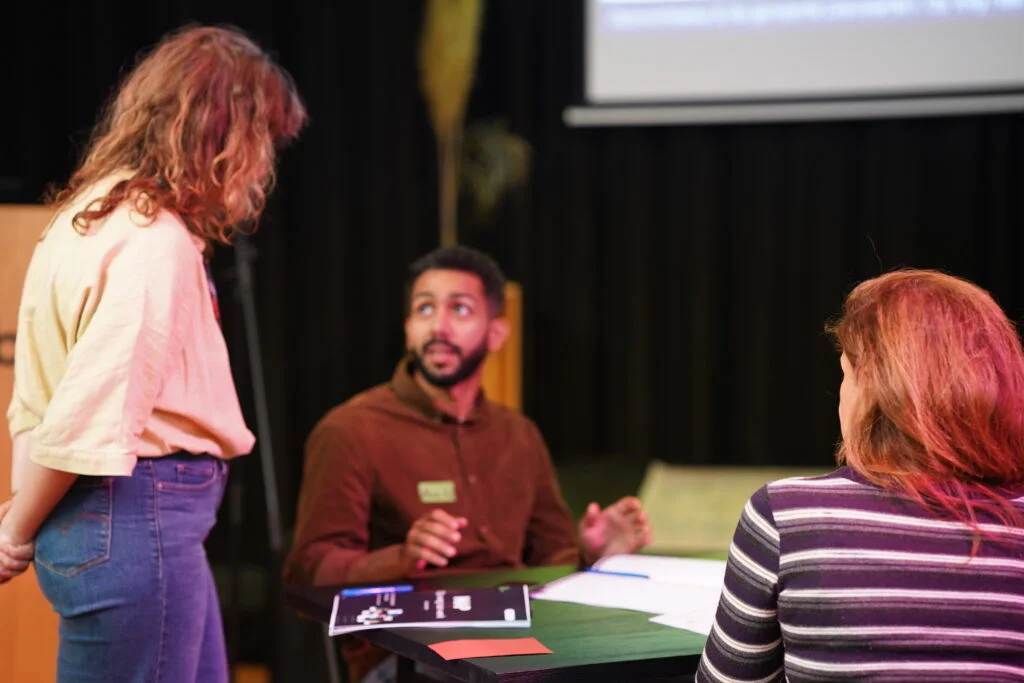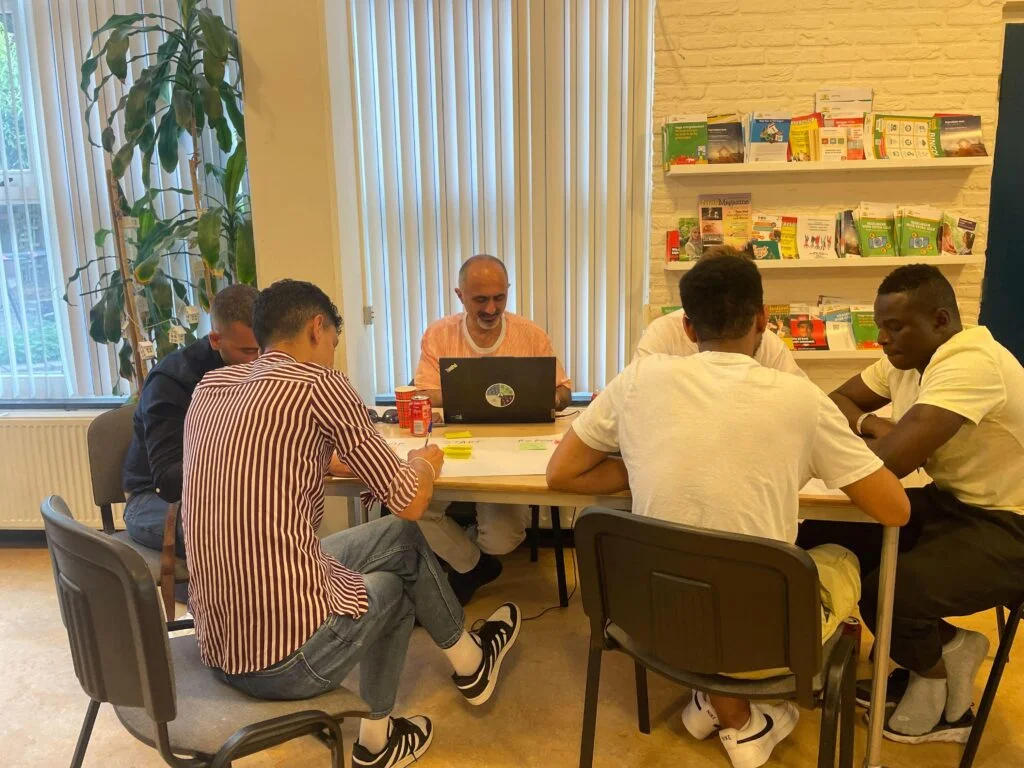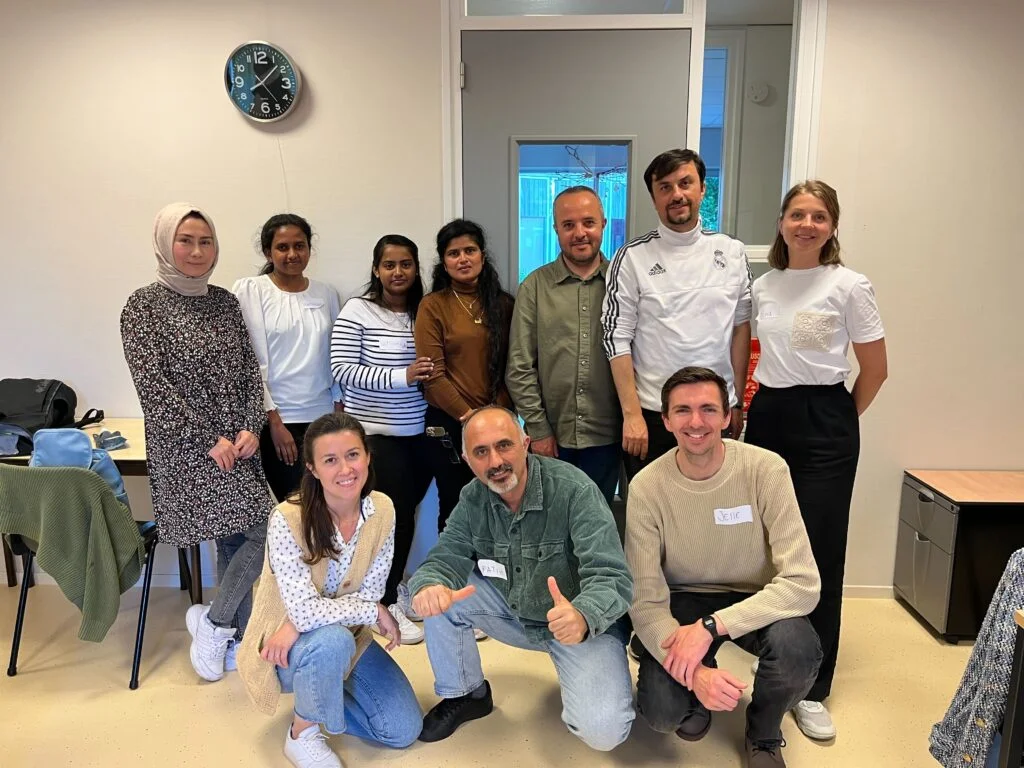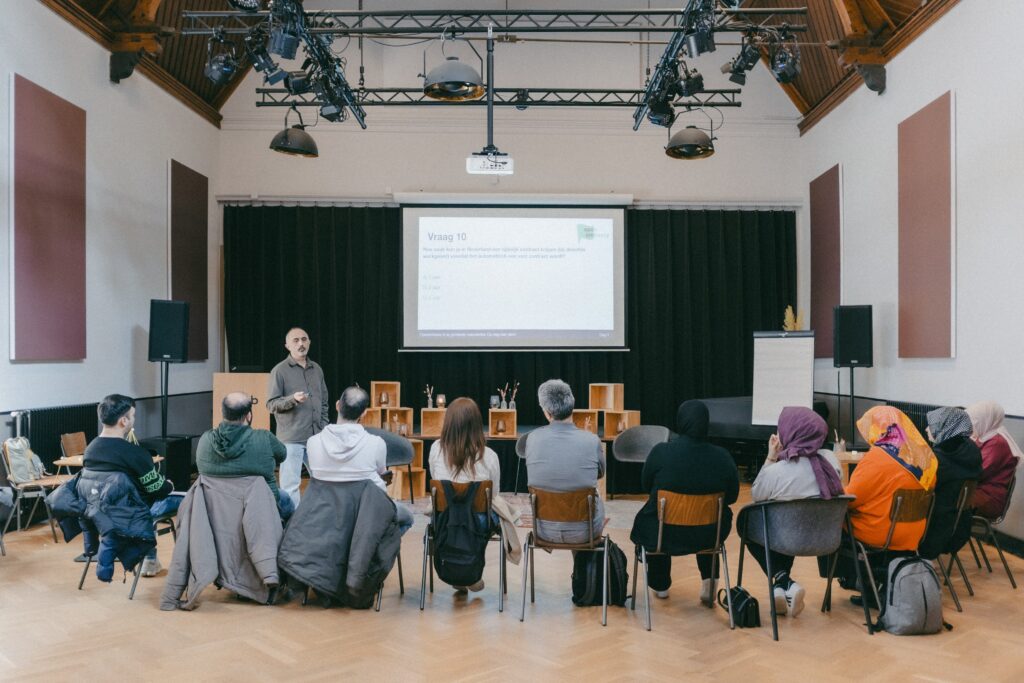First survey of integrationists' perspectives on the 2021 Integration Act
Integration through the eyes of newcomers is OpenEmbassy 's first research report into the Integration Act 2021 from the perspective of newcomers integrating in the Netherlands. The research was commissioned by the Ministry of Social Affairs and Employment and conducted in collaboration with Regioplan and BMC. This report is a first qualitative exploration and has been shared by the minister with the Lower House. Three more reports will follow. This article follows some key findings and a brief explanation of the methodology.
By: Pepijn Tielens
Goals and expectations
"As you can see, I speak Dutch in 2028 and have a permanent residence permit. I also got my MBO degree and a driver's license. I have found a job so I can be completely independent. I feel happy in 2028 because I have no financial problems and language problems and I am used to the Dutch culture." - asylum migrant Wi2021
Building a new life is more than just settling in. That is why we discussed in detail with the participants their goals, expectations and experiences since their arrival in the Netherlands. We saw that the core elements of the law (language, education and preparation for work) are in line with the goals that participants in civic integration set for themselves. These elements are also asked about in a survey that has now been completed by some 5,000 newcomers and will be incorporated into the second report.
I think it is too early to feel at home in the Netherlands. I am not yet integrated and I believe I do not yet play a role in society. I am trying my best to give back to society what I have received and that I can say, "Yes, here is my new home where I can help others to make this country a better place to live." - asylum migrant Wi2021
The period before integration
"The asylum procedure is destructive to your motivation and is contrary to integration. The idea is to be able to build something here. It doesn't help if you're not allowed anything and have to move every time." - asylum migrant Wi2021
The biggest shortcoming is that people have to wait a long time before they can begin integration. A large proportion of the newcomers we spoke to want to start with language, education and work, as well as making connections with the host society. Starting as soon as possible for newcomers in the context of this study means research; from arrival in the Netherlands as soon as they are ready. In practice, this is before the start of integration.
Role of the municipality
"My contact person explains everything clearly and is really the key for me to get the right information" - family migrant Wi2021
Participants' experiences with two important new elements of the Act integration (the broad intake, and the PIP) are predominantly positive, when there is sufficient space is provided for newcomers to share their perspective. The involvement of the municipality, and specifically the client manager, can have great added value, provided they invest in good information and a good relationship with newcomers. This is a big difference from the Wi2013 where this involvement was not there or less.
Integration pathways and language
"The language classes are not helping well. The levels vary too much and the classes are full. I can't choose a choose another class." - asylum migrant Wi2021
For respondents, language education is currently the most important part of the Integration Act. There we see that there are varying experiences, and relatively high dissatisfaction with the quality of the offerings. Especially about the group composition and the level of lessons. In this study, the observation was made that newcomers who have a high language ambition experience less autonomy compared to the Wi2013. This allows them, in their eyes, to integrate more slowly or with less quality than they would like.
Custom
It was also noticed that customization, could not or not easily be organized by providers of Inburgering programs; think, for example, of better matching childcare times or family situations. This is an observation that we will explore further in the remainder of this multi-year study.
Work
"The main goal for me is to find my place in this society and resume my profession as a teacher, as I did in my country of origin. In a simple way to give something back to this country as it has given to me." - family migrant Wi2021
The participants in this study, despite just starting out, also have a need for job guidance. Here, language is seen as an important tool. This experience aligns with the premise in the law of duality. When components aimed at language and work in some cases do not meet expectations, there is uncertainty as to whether the integration can offer enough to build one's life in the Netherlands. There is then no room to shape a future perspective.
Methodology of integration through the eyes of newcomers
For the report Integrating through the eyes of newcomers, we used five qualitative research methods: the expert pool, network of key people, action research, design probe and in-depth interview. The resulting experiences were analyzed and captured in the first report.
Expert pool
The expert pool is a methodology developed by OpenEmbassy that enables newcomers (the experts) to share their experience, and interpret experiences of others. The expert pool used for this study consisted of 15 experts, all asylum migrants under the Wi2021, each part of communities of newcomers in the Netherlands.
Network key people
The network of key people used for this study consisted of 15 people with good connections within communities of newcomers. From their professions, they support newcomers during integration. The participants of the network are all themselves integrated under the Wi2013.
Action Research
In the action research a researcher engages with a newcomer in his or her integration process in the Netherlands, by making plans with them to best achieve their ambitions and thus learning what obstacles a person faces in the context of integration. In the action research for this study, 6 newcomers were supported.
Design probe
The design probe is a qualitative research method for arriving at deeper insights about people's lives and experiences. Design probes refers to a self-documentation method in which users observe, reflect on, and document their everyday lives and experiences.
In-depth interview
A in-depth interview is a conversation with one individual, in which the opportunity arises to talk longer about one or more topics, using a questionnaire (structured or not). Eight in-depth interviews were conducted.
Continue reading
The entire report Inburgering through the eyes of newcomers can be downloaded below. A second report will be published after the summer of 2024 that will include the results and analysis of the first survey.
Download report
"Integrating through the eyes of newcomers."
Article Domestic Governance
"Less autonomy since new integration system."
